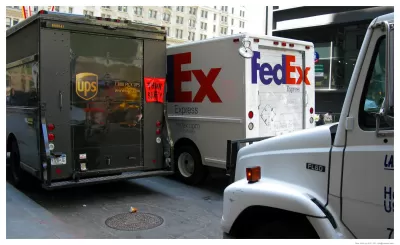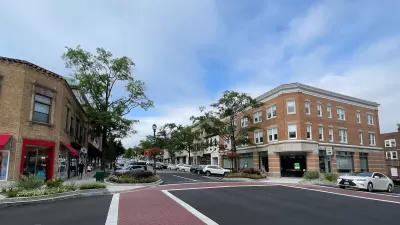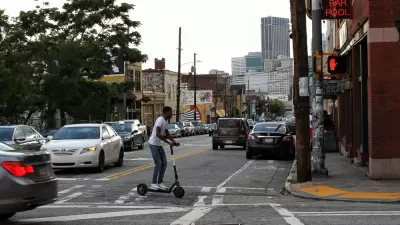With urban pollution and traffic violence disproportionately affecting communities of color, better management of public space and streets could improve equity in cities.

Sahar Shirazi assesses the changes to streets and public space brought on by the pandemic, noting that "fallout often hits hardest on those historically marginalized and those most vulnerable." As we make dramatic changes in how we use public space, Shirazi argues that "[i]t is essential, now more than ever, that any urban equation factor in the reality that our urban environments have historically been unequal places."
The choices made by policymakers now "can either exacerbate those inequities, or mitigate them." Shirazi points to the intensifying battle over curb space as one area where "cities can use their existing authority over curbs to shift driver behavior, more effectively allocate curb space to match the needs of the community, and improve safety, environmental sustainability, and revenue generation," partnering policy with technology to "intelligently and democratically mitigate the negative impacts of these changes and improve life for all city-dwellers, especially those already facing financial hardship or discrimination."
Shirazi recommends that cities charge companies like Amazon and UPS for parking and curbside access. "Additionally, more efficient parking enforcement can improve traffic flow and reduce transit time, which will also be a boon to lower-income communities which rely more heavily on public transit and frequently have higher greenhouse gas emissions in their neighborhoods and worse air quality than other city dwellers."
Shirazi also emphasizes the importance of achieving two important goals: zero traffic fatalities and zero carbon emissions, both of which disproportionately harm communities of color. "By addressing road safety, parking, emissions, and how we allocate and charge for curb usage, cities can make strides to address inequities present today."
FULL STORY: Op-Ed: Managing Our Streets Better Can Reduce Inequities In Our Cities

Planetizen Federal Action Tracker
A weekly monitor of how Trump’s orders and actions are impacting planners and planning in America.

Congressman Proposes Bill to Rename DC Metro “Trump Train”
The Make Autorail Great Again Act would withhold federal funding to the system until the Washington Metropolitan Area Transit Authority (WMATA), rebrands as the Washington Metropolitan Authority for Greater Access (WMAGA).

The Simple Legislative Tool Transforming Vacant Downtowns
In California, Michigan and Georgia, an easy win is bringing dollars — and delight — back to city centers.

The States Losing Rural Delivery Rooms at an Alarming Pace
In some states, as few as 9% of rural hospitals still deliver babies. As a result, rising pre-term births, no adequate pre-term care and "harrowing" close calls are a growing reality.

The Small South Asian Republic Going all in on EVs
Thanks to one simple policy change less than five years ago, 65% of new cars in this Himalayan country are now electric.

DC Backpedals on Bike Lane Protection, Swaps Barriers for Paint
Citing aesthetic concerns, the city is removing the concrete barriers and flexposts that once separated Arizona Avenue cyclists from motor vehicles.
Urban Design for Planners 1: Software Tools
This six-course series explores essential urban design concepts using open source software and equips planners with the tools they need to participate fully in the urban design process.
Planning for Universal Design
Learn the tools for implementing Universal Design in planning regulations.
Smith Gee Studio
City of Charlotte
City of Camden Redevelopment Agency
City of Astoria
Transportation Research & Education Center (TREC) at Portland State University
US High Speed Rail Association
City of Camden Redevelopment Agency
Municipality of Princeton (NJ)





























